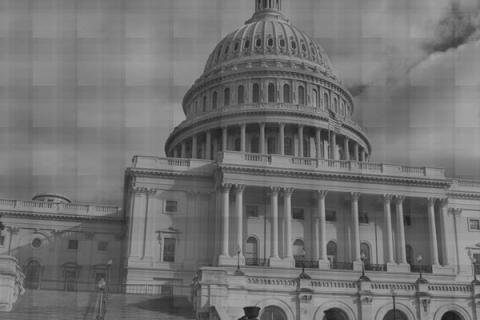
California Governor Jerry Brown is set to release his hotly anticipated budget revision Tuesday. Following stronger than expected revenue returns -- $4.5 billion according to the Legislative Analysts Office -- interest groups and district representatives alike have been eager to see just how much bacon will be on the table.
One complicating factor to budget negotiations is the use of 'spot' bills. Essentially legislative placeholders, a 'spot bill' reserves space for last-minute deals to make it into the final budget which is then signed into law by the governor.
Each spot bill is initially nearly indistinguishable from the next. They read:
"It is the intent of the Legislature to enact statutory changes relating to the Budget Act of 2013"
In the closing days and hours of budget negotiations, spot bills are then filled out -- passed between chambers, voted on and approved -- before interest groups or constituents have a chance to weigh in.
Yet, this is not a new phenomenon. During budget negotiations in 2012, a similar drama played out between minority Republicans and Democrats, but not without some fallout.
In January, a lawsuit brought by the Howard Jarvis Taxpayers Association prompted the Third District Court of Appeals to find some instances of spot bill usage to be unconstitutional. Although the practice, in general, remains legal, some assembly members like Kristin Olsen (R-Modesto) have publicly opposed spot bills while decrying their use in present budget talks.
“The public deserves full disclosure and timely and accurate information from their elected officials about how their taxes are spent," Assemblymember Olsen said in a statement. "Only then can we claim to have a true representative government where people have the ability to voice their opinions on all issues.”
Along with a coalition of Republicans and Democrats, as well as California Common Cause, Olsen has pushed Assembly Constitutional Amendment 4. ACA 4 would require all legislation to be in print and available publicly at least 72 hours before it's voted on.
Transparency advocates argue the 'back-room' deals accustomed to spot bills provide the public little chance to hold lawmakers accountable.
Whereas veterans of California's legislative process see the need to afford lawmakers more flexibility in order make government work. Publicizing every tough budget decision can make it very difficult for any representative, Republican or Democrat, to come to an agreement -- especially on the budget. Likewise, requiring all legislation to be printed 72 hours before a vote can significantly stifle an already fragile proceeding.
Budget negotiations are the most notorious for government deadlock, and even prompted the state to pass Proposition 25 in 2010. Prop. 25 reduced the necessary two-thirds majority to pass a budget, replacing it with a simple 50 percent plus one vote, while at the same time requiring legislators to forfeit their salaries every day past the deadline until a budget is passed.
